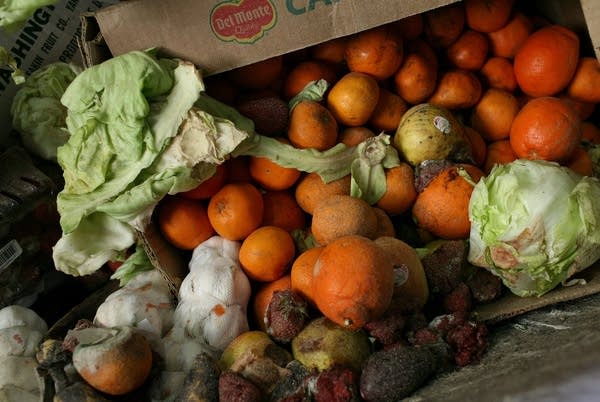Beyond the compost bin: How companies are reducing food waste

Go Deeper.
Create an account or log in to save stories.
Like this?
Thanks for liking this story! We have added it to a list of your favorite stories.
Nonprofits and food companies met in Minneapolis this month to discuss better ways to reduce food waste.
About 35 percent — or $408 billion worth — of food in the United States goes to waste, said Dana Gunders, executive director of ReFED, the group that put on the conference. She said that contributes to climate change in three ways: food scraps emit methane as they decompose in landfills; unnecessary production, transportation and refrigeration of food emits carbon; and inefficient food production requires more land, potentially disrupting natural habitats that store carbon.
But Gunders said, “One of the most exciting things about this problem is that it, ultimately, is very solvable.”
She said large companies, including Minnesota-based General Mills, have committed to reduce waste and are already making progress. Grocers are tapping technology to help them right-size their inventories. And food entrepreneurs are finding news ways to use food byproducts that typically go to waste, such as whey from yogurt production.
To hear more from Gunders, click play on the audio player above or subscribe to the Climate Cast podcast.
Turn Up Your Support
MPR News helps you turn down the noise and build shared understanding. Turn up your support for this public resource and keep trusted journalism accessible to all.



